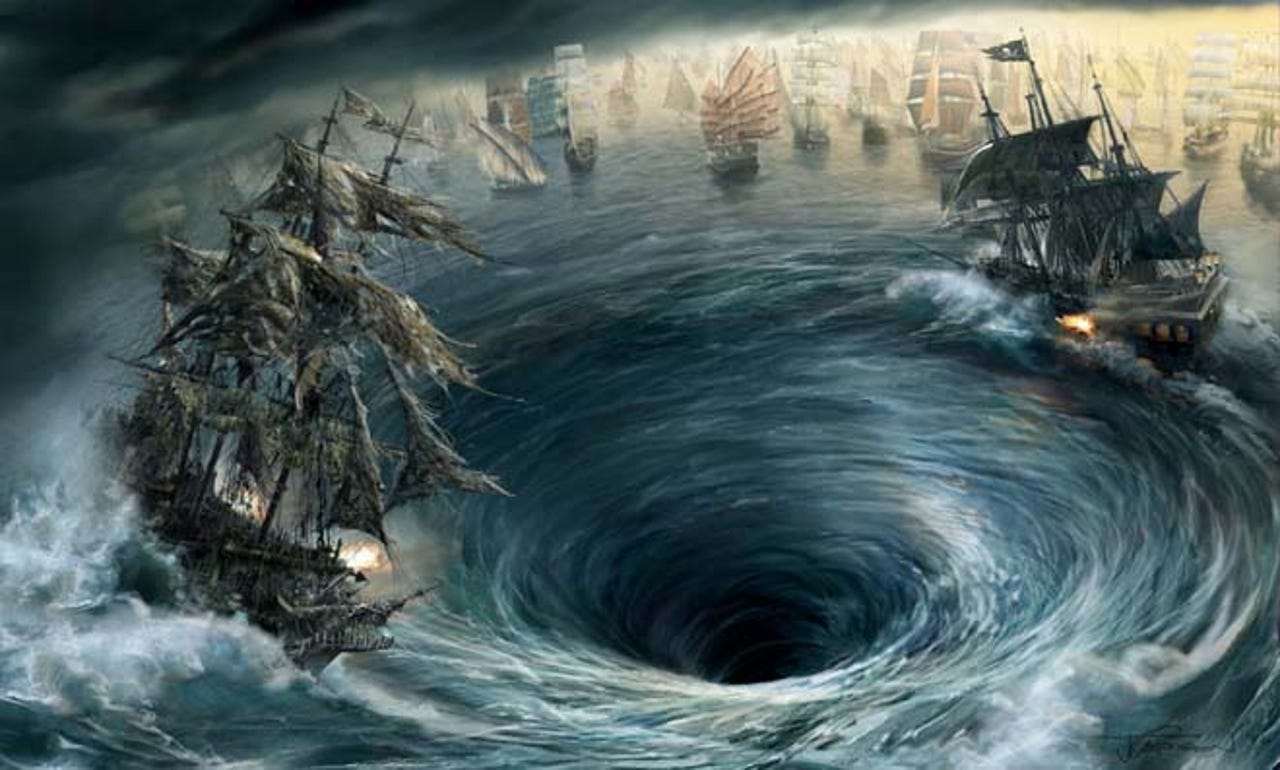2010: a big year for the war on piracy

Governments and big industry have fought hard this year for control of the vast online oceans which were once the lawless playground of pirates.

(Credit: Disney, all rights reserved)
They have come late to the fight. And many argue they do not understand the principles on which the online world is allegedly built.
But what they lack in experience, they address with money and power — and they have built a humbling arsenal.
COICA
(Torpedo image, by Marion Doss, CC BY-SA 2.0)
The big gun of the anti-pirate coalition is COICA (the Combating Online Infringement and Counterfeits Act). This United States law, passed quickly with unanimous support, allows a website's domain to be seized if it "has no demonstrable, commercially significant purpose or use other than" offering or providing access to unauthorised copies of copyrighted works.
It was pushed along with a flurry of last-minute lobbying from representatives of content providers including the Motion Picture Association of America (MPAA) and the Recording Industry Association of America (RIAA) and union and media groups.
More than 70 websites have been taken down under COICA. In anticipation of its US .com domain being shut down, Prominent Bittorrent website Demonoid has migrated to the Montenegro top-level domain, .me, and it has posted a banner asking visitors to write to US senators to oppose the law.
ACTA
(Copyright image, by Loan Sameli CC BY-SA 2.0)
The nuts and bolts of the Anti-Counterfeiting Trade Agreement (ACTA) were also finalised this year, paving the way for copyright infringement to be battled across the world.
The treaty has developed draft international standards on how to enforce intellectual property rights in countries including Australia, the UK, the US and the European Union. The end goal, perhaps a decade off, appears to be to pressure non-signatory nations to toughen their enforcement of copyright laws.
Bounties
Paper money image, by Kevin Dooley, CC2.0
You might think you would never snitch on your boss for using pirated software, but would $20,000 change your mind? The Business Software Alliance is betting on it. The Australian chapter ran a campaign offering the reward for anyone who reports the use of pirate software in businesses.
The $20, 000 is undoubtedly a small fraction of the fine the business will wear for its crime.
Allies
(Handshake image, by The US Army, CC2.0)
Events have forced big industry players to show their colours as friend or foe. Google had been fiercely neutral, but has now moved to cut pirate sites from appearing in search results.
Its complaint system has been sped-up, making it easier for Hollywood to complain about pirates using Google products. And the company is also developing means to cut pirate terms from appearing in auto-complete.
Google has also shown its willingness to expel copyright violators from its AdSense program and now Mastercard, Visa and Paypal have blacklisted pirate websites from using their financial payment services.
But the pirate sites have smaller payment providers like Flattr.com, owned by the Pirate Bay's Peter Sunde, which allows users to donate to sites.
Supply lines
(Gavel image by Brian Turner, CC2.0)
Pirate content can only exist if users can access it. So attempts by Hollywood to force internet providers to cut-off users who download pirate content could all but finish the battle. The biggest movie studios, represented by the Australian Federation Against Copyright Theft, are embroiled in a federal court siege against Australia's third biggest internet provider, iiNet, in a watershed case that will determine if providers must monitor user downloads and act against those accessing copyright-infringing material.
The studios lost the initial round earlier this year and an appeal is still being fought.
Meanwhile, the US movie and music studios are pursuing large civil cases against individual copyright-infringers. This year, American single mother Jammie Thomas-Rasset lost what is seen by some as another watershed court battle against the RIAA for sharing 24 copyright-protected songs and now owes some US$1.5 million for doing so.
Piracy and privacy sound alike...
(Binded document image, by Sean MacEntee, CC2.0)
The online lives of users have also caught the attention of governments from countries including Australia, the UK and the EU. The Australia Government's secretive plans, first revealed in June by this website, could see records created and kept when Australians communicate over the internet to each other and could even view stored web histories.
The Australian Federal Police have backed the scheme, noting it will "add weight to [the] investigation process".
Internet providers allege the scheme is onerous and have accused the government of strong-arm tactics.